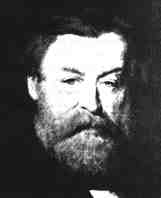Anton Riemerschmid (group of companies)
| Wine distillery and liqueur factory GmbH & Co. KG | |
|---|---|
| legal form | GmbH & Co. KG |
| founding | 1835 |
| Seat | Justus-von-Liebig-Str. 2 85435 Erding |
| management | Frank Barwinski, Ralf Johannes Brinkhoff |
| Branch | Liqueur and syrup manufacturer , spirits importer |
| Website | www.riemerschmid.de |
The Anton Riemerschmid Weinbrennerei und Likörfabrik GmbH & Co. KG is a liqueur manufacturer and spirits importer based in Erding . The company was founded by Anton Riemerschmid in 1835 and has been part of the Underberg Group since 1996 . The company's best-known brands include Escorial , Münchner Kindl and Pitú . Numerous fruit and bar syrups are also offered under the Riemerschmid brand .
history
The master dyer Anton Riemerschmid, born in Burghausen in 1802 , became a partner in the royal Bavarian privileged wine spirit, spirit, liqueur and vinegar factory Tip & Bigl in 1835 , which then operated under the name Tip, Bigl & Riemerschmid and was based in Maximilianstrasse in Munich . Riemerschmid was one of the first manufacturers to create living space for the workers based on the English model - but not in the form of a settlement, but in the form of an apartment building along a central corridor above the production rooms. In 1837 the company was renamed Bigl & Riemerschmid after a partner left, and in 1852 Riemerschmid took over the company as sole owner.
In 1869 the factory was relocated to the Praterinsel , a popular old Munich amusement site at the time. In 1870 the vinegar factory, newly built on the Praterinsel, went into operation. It aroused great interest beyond the experts because of its size and because of the manufacturing process that differs from the usual. The chemist Justus von Liebig carried out some of his investigations and studies on the activity of vinegar bacteria here, as did Max von Pettenkofer , the first professor of hygiene to teach in Germany.
After the death of Anton Riemerschmid in 1878, his sons Eduard and Heinrich Riemerschmid took over the management of the company. In 1905 Carl Riemerschmid took over. With his brother, the architect Richard Riemerschmid , he built a theater that later housed the Münchner Kammerspiele . This was run by the family itself for almost 30 years and passed to the city of Munich in the 1930s. In 1911, Carl's son Robert Riemerschmid took over management of the company. He was also a co-founder of the “German Hour in Bavaria”, which later became the Bavarian Broadcasting Corporation . He is considered to be the inventor of the Escorial herbal liqueur, which is based on the French Chartreuse .
After the First World War , the company's situation worsened due to the introduction of the Reichsbranntwein monopoly and a multiplication of the tax on alcohol. Liqueurs and spirits became luxury drinks. But after the financial and economic crisis of the 1930s, the company increasingly prospered until the beginning of the Second World War . During the first years of the war, deliveries to the Wehrmacht and the civilian population ensured continued existence, but towards the end of the war the company was plunged into a deep crisis due to bomb damage and looting by the occupying forces.
In 1945 Robert's son Heinrich Riemerschmid became a partner and representative of the company and began to rebuild the destroyed factory facilities. As alcohol for drinking was forbidden by the occupying forces, the production of vinegar and pharmaceutical monastery spirits began . With the currency reform in 1948, alcohol was again permitted for drinking, but with an immensely high tax. In 1963 Heinrich Riemerschmid took over sole management of the company.
In 1971 the Donath company, a fruit juice press founded in 1893, was taken over. In 1975 the Wolfra wine press was added, but was separated from it again in 1987. In 1984 the company headquarters was relocated to Erding and the production facility was modernized and enlarged.
In 1996, after five generations, the Anton Riemerschmid group of companies was transferred to the Underberg group of companies, but retained its own outward presentation. The name Riemerschmid and the Praterinsel remain closely linked to this day. For a long time, the former factory rooms were used artistically as an action forum on the Praterinsel (a privately owned cultural institution) in line with family tradition .
After the sale to the investor Dieter Bock and the evacuation of the building, the renovation and new use began in 2000.
Brands
In addition to its own brand "Riemerschmid", under which fruit syrups are sold, the group of companies sells well-known brands such as:
- Pitú
- Escorial
- Munich child
- Sangrita
- Silla tequila
- XuXu, a mixed drink made from strawberry pulp and vodka
Until production was taken over by Hemmeter, another company in the Underberg Group, cocktail bitters (Angostura bitters and orange bitters ) were also sold under the Riemerschmid brand.
swell
- Files on the Riemerschmid liqueur factory at the Bavarian Economic Archives (not evaluated)
literature
- Petra Niedziella: Riemerschmid liqueur factory on the Praterinsel in Munich. Construction documentation (workbooks on monument preservation 32), Munich 1987 (not evaluated)
- 150 years of Anton Riemerschmid Munich. o. O. 1985 (not evaluated)
Web links
Individual evidence
- ↑ Praterinsel: The History of the Riemerschmid Family ( Memento from October 8, 2007 in the Internet Archive )
- ^ History of the Praterinsel ( Memento from October 8, 2007 in the Internet Archive )
- ↑ http://www.praterinsel-catering.com/praterinsel_catering_service_profil.html


